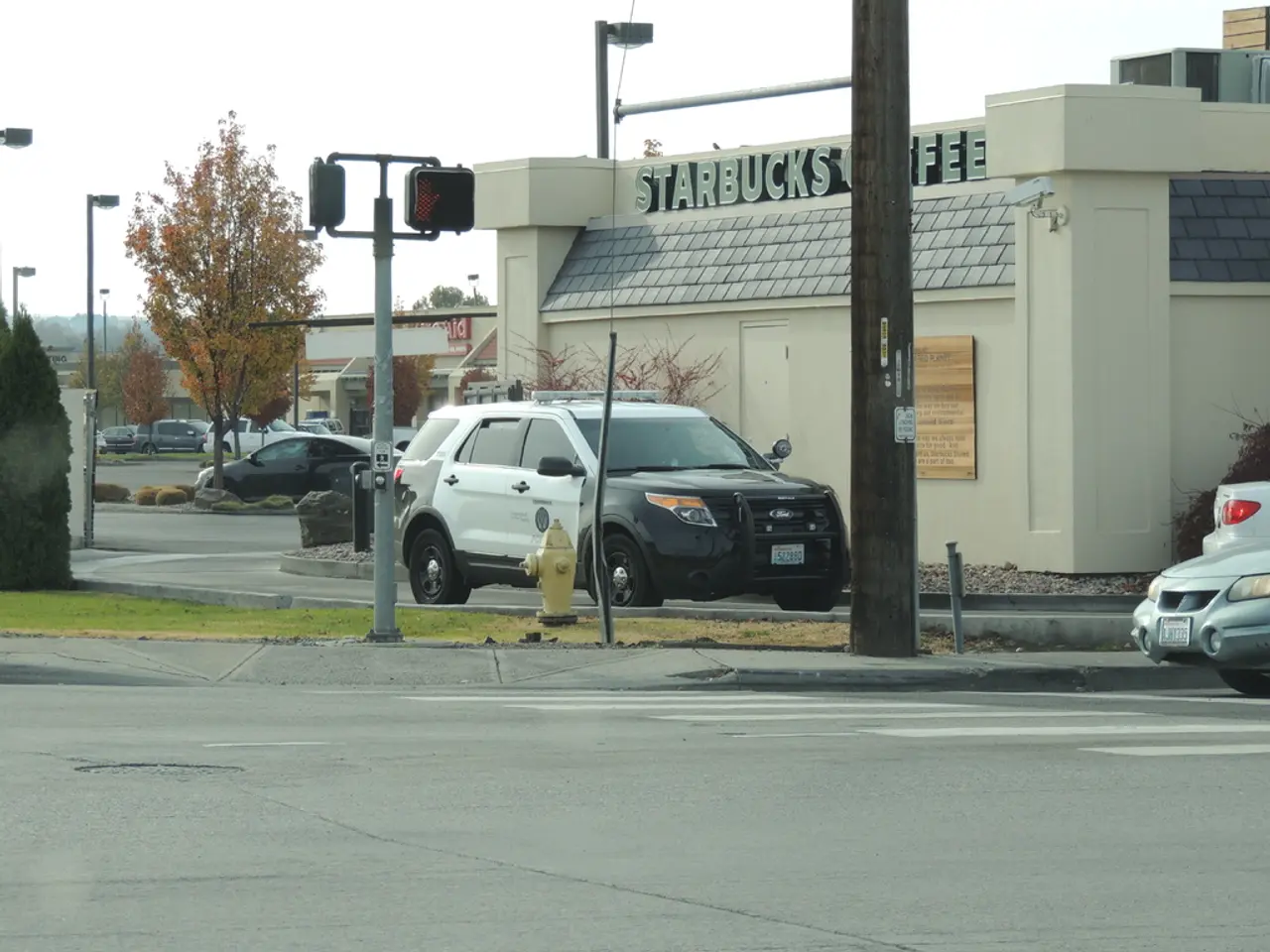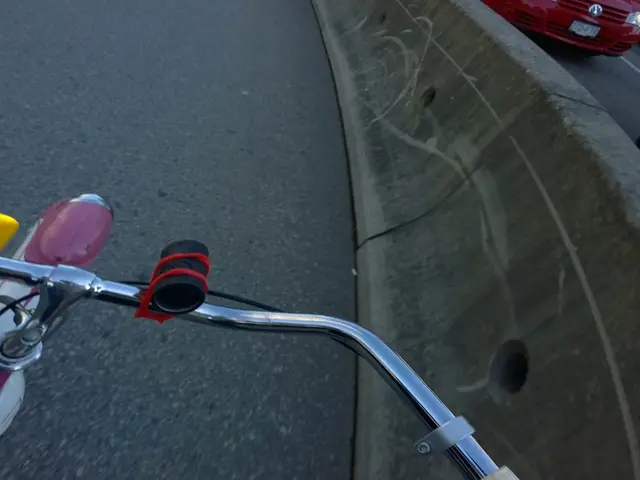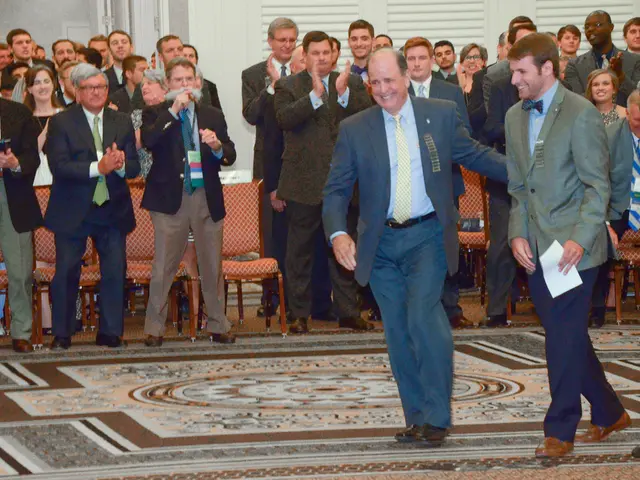Debate midway through on budget matters in the Saeima (Latvian Parliament)
In the heart of Latvia, decisions about the future of local infrastructure, such as road improvements and sports club maintenance, are made by Members of Parliament (MPs) through the annual State Budget Law. This process involves parliamentary debate and formal voting on the entire state budget, with specific allocations for local infrastructure projects specified within it [2].
Here's a closer look at how this process unfolds:
- The government drafts an annual budget proposal that includes funding for various sectors, including local infrastructure.
- This proposed budget is then submitted to the Latvian Parliament (Saeima), where MPs debate the allocations and can propose amendments or reallocations.
- After deliberations, the Parliament formally votes to approve or modify the budget as part of the annual State Budget Law.
- Once approved, the budget funds are allocated to ministries and local governments responsible for implementing infrastructure projects such as road repairs and sports facilities maintenance [2].
While the process for individual local projects may not be exclusive to Latvia's internal mechanisms, the parliamentary budgetary authority over national and local expenditures is clear. This process aligns with typical parliamentary budgetary control where MPs collectively decide spending priorities in an annual budget framework that then guides local allocations.
No specific information was found about special committees or procedures unique to Latvian MPs for local infrastructure projects, but standard legislative budget approval appears to be the main method [2]. This budget framework operates within the overall fiscal governance policies of the EU and Latvia’s national laws.
Among the recent proposals, the National Alliance has suggested allocating funds for the V1209 Embūte-Vainode road, double surface improvements, and the P114 Priekule-Lithuanian border (Plūdoņi) road, as well as €1.1 million for the asphalt surface of the latter [1]. Additionally, MP Viktorija Pleškāne has proposed allocating €350,000 to the Rēzekne association Atma for sports club maintenance, and EUR 18,000 for a ski slope in Rēzekne and other projects [1].
However, these proposals have not been without criticism. Head of the Budget Committee, Jānis Reirs, has criticized unprofessional and unfounded proposals submitted to the budget [1]. The transport minister, Kaspars Briškens, has also expressed concerns about politicians determining road investments, believing the choice should be left to professionals [1].
Meanwhile, former Transport Minister Jānis Vitenbergs has called on the Prime Minister to visit impassable villages without normal roads, while Uģis Mitrevics, another MP, has stated that the reform of municipalities will not succeed with poor road conditions [1]. The transport sector might be left unprotected in the next state budget, according to both Vitenbergs and Briškens [1].
As the debate continues, it's clear that the future of Latvia's local infrastructure is in the hands of its MPs, who will decide on the allocations through the annual State Budget Law. The process, while standard, carries significant implications for the country's roads, sports facilities, and overall development.
[1] Latvijas Avīze, "Latvijas politikām neparādītas uz iespējas, kad transportsektors būs aizpildītāks par valsts budžetu" (2022, January 25). Retrieved from https://www.latvijasavize.lv/artikls/latvijas-politikam-neparadits-uz-iespies-kad-transportsektors-buz-aizpilditaks-par-valsts-budzetu_449520
[2] Ministry of Finance, "State Budget Law" (n.d.). Retrieved from https://www.finance.gov.lv/en/state-budget-law
- The government drafts an annual budget proposal that includes funding for various sectors, such as local infrastructure, transportation, and finance.
- The Latvian Parliament, through Members of Parliament (MPs), debates the allocations and can propose amendments or reallocations for these sectors in the annual State Budget Law.
- After deliberations, the Parliament formally votes to approve or modify the budget, which guides the allocation of funds to ministries and local governments for implementing infrastructure projects.
- The parliamentary budgetary authority over national and local expenditures in Latvia aligns with typical parliamentary budgetary control, but the process operates within the overall fiscal governance policies of the EU and Latvia’s national laws.






